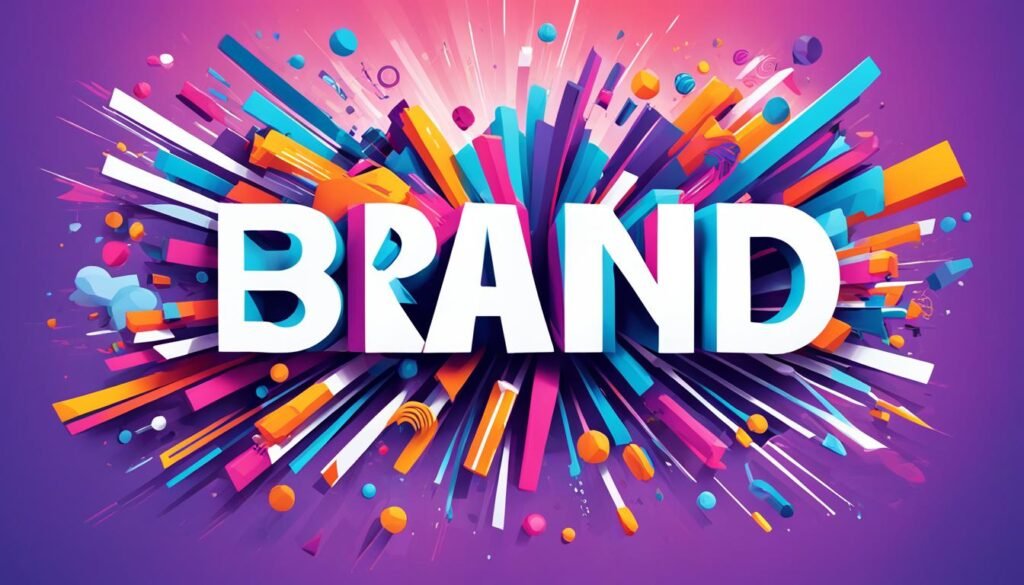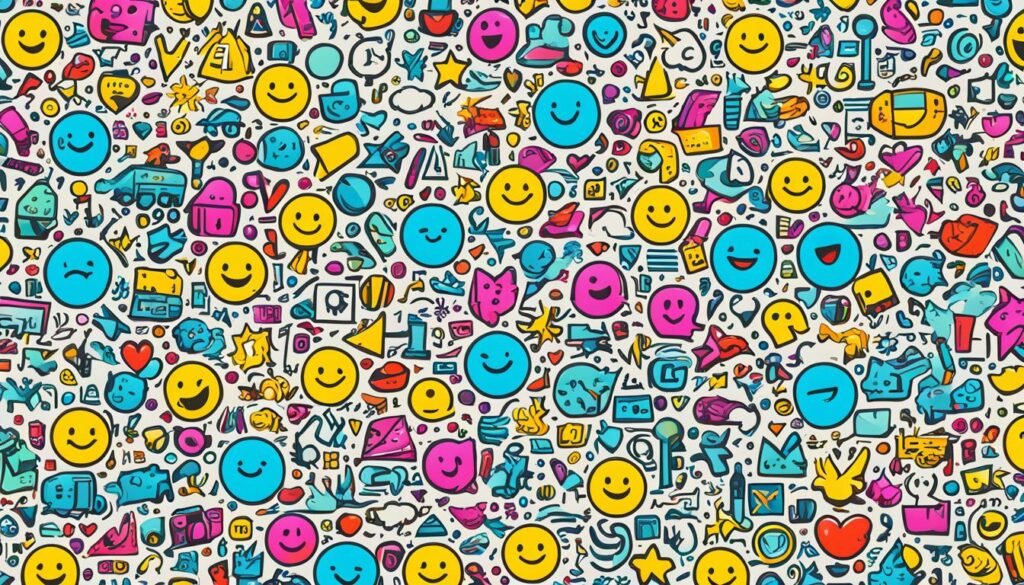The internet has created its own unique language. “IFKYK” is a new expression gaining popularity. It stands for “if you know, you know,” implying shared knowledge among internet users.
Understanding online lingo like “IFKYK” is crucial in our digital world. These abbreviations connect users through shared experiences. “IFKYK” signals a nod to those in the know, creating a sense of belonging.
Slang terms like “IFKYK” spread quickly on social media platforms. Twitter, Instagram, and TikTok shape the use of these terms. They contribute to their swift adoption and widespread recognition.
Table of Contents
ToggleKey Takeaways
- Online lingo like “IFKYK” connects users through shared knowledge or inside jokes, enhancing digital content’s relatability.
- Slang terms like ‘IFKYK’ spread rapidly online, showcasing the rapid evolution of language in the digital age.
- Social media platforms are instrumental in driving the use and virality of slang terms, shaping the way we communicate online.
- Understanding the nuances of internet slang can help users navigate digital communities and foster a sense of belonging.
- Engaging with such terms can make digital content more appealing and relatable to a contemporary, tech-savvy audience.
The Rise of Internet Slang
Internet slang is booming. Terms like ‘Ifkyk’ spread fast online, showing how language changes on digital platforms. Slang helps people express themselves quickly and creatively.
It’s revolutionizing digital communication. Internet slang has become a vital part of our online chats.
The Impact of Social Media
Social media has transformed how we talk. Users worldwide share and adopt new slang terms regularly. Twitter trends, Instagram stories, and TikTok videos spread digital lingo.
Evolution of Online Language
The internet’s language never stops changing. New words pop up, while old ones disappear. Online groups often create their own slang trends.
Emojis and memes add to this lively mix. These visual elements can sometimes replace words entirely.
| Year | Trending Slang | Cultural Reflection |
|---|---|---|
| 2019 | Sksksk, and I oop | Expressing surprise and amusement |
| 2020 | Quaranteen, Rona | References to the COVID-19 pandemic |
| 2021 | Cheugy | Describing something as no longer trendy |
This table shows how certain slang words gain popularity. They often reflect the culture and trends of a specific year.
“The internet’s language is always changing. New words appear, while old ones fade out. Online communities often create their own slang, with emojis and memes adding to this dynamic evolution.”
Exploring the Origins of “Ifkyk”
“Ifkyk” stands for “If You Know, You Know.” This online slang term started in niche internet communities. It has now spread across various social media platforms.
Memes helped make “Ifkyk” popular in online discussions. Celebrities and influencers using the term boosted its popularity. It became a viral hit on Twitter and Instagram.
“Ifkyk” is appealing because it’s exclusive. It suggests shared knowledge without revealing too much. This creates a sense of connection among internet users.
The phrase acts like a secret code. It’s a digital handshake for those familiar with online slang history and internet communities.
“‘Ifkyk’ is a subtle way to acknowledge a shared experience or understanding without needing to spell it out. It’s a nod to the insider knowledge that binds certain internet communities together.”
The ifkyk origin shows how online language evolves. It demonstrates the power of digital communication. This term reflects the changing nature of our conversations.
Social media drives the spread of internet slang. Phrases like “Ifkyk” will likely continue to grow in influence. They create a web of shared cultural references among digital users.
The Psychology Behind Slang
Internet slang has become crucial to our digital conversations. Words like “Yeet,” “Sus,” and “Cheugy” have taken over our online chats. Let’s explore why we’re so drawn to these unique terms.
Building Community Through Language
Slang acts as a secret code among friends. It creates a sense of belonging in groups and online communities. Shared slang becomes a fun inside joke that only members understand.
This special language strengthens social bonds. It helps people feel connected to others who use the same words.
Slang as a Marker of Identity
Slang shapes our personal and group identities. The words we use reflect our backgrounds and interests. They’re a form of self-expression.
Teens often create slang to feel unique. Local slang can show pride in one’s hometown. Subcultures like skaters and gamers develop their own vocabularies.
Social media has changed how we communicate. Slang plays a big role in our online interactions. It shows how language, community, and identity connect in today’s world.
Slang in Marketing Strategies
Modern brand marketing and social media marketing often harness the power of slang. Using slang in advertising helps brands build a relatable brand image. This approach allows them to connect deeply with their target audience.
Brands Jumping on the Slang Bandwagon
Marketers use brand slang campaigns to engage younger consumers fluent in internet language. By using casual speech and slang, brands appear fresh and trendy. This strategy helps them stay in tune with their audience’s cultural references.
Social media platforms are prime battlegrounds for marketing with slang. Brands create content that resonates with followers using slang. Clever use of slang in captions, hashtags, and packaging can spark viral engagement.
Success and Backlash Examples
Not all attempts to use slang in advertising succeed equally. Some brand slang campaigns become instant hits. Others face backlash if the slang seems fake or insensitive.
Fashion Label X saw youth sales surge after using authentic slang terms. Snack Brand Y went viral on TikTok with trendy slang. However, Drink Company Z faced criticism for unintentionally offensive slang use.
Success depends on understanding the audience’s language and culture. Brands must research and test their slang usage strategies carefully. This ensures their message resonates without causing offense or alienation.

“57% of consumers are more likely to purchase from a brand that uses slang in its marketing, as it creates a sense of familiarity and authenticity.”
The Global Reach of Internet Slang
Our world blends languages, and internet slang spreads fast. Slang words travel across continents, shaping our chats. This sharing shows the global nature of internet slang trends.
Teens worldwide often use the same slang expressions. A catchy phrase from California can quickly go viral in Cairo. This international slang exchange enriches our global dialogues.
It creates a shared digital language. This language bridges cultural and linguistic divides.
Cross-cultural Adoption of Slang
Media and popular culture fuel the spread of slang. Music, movies, and TV shows bring slang to new audiences. This inspires cross-cultural language sharing.
Travelers also help spread slang. They bring new phrases from their trips and share them at home.
Social media speeds up slang’s border-crossing. It allows for global online communication and quick spread of universal internet slang.
The Universality of Internet Slang
Some internet slang terms have become a universal code. Abbreviations like “LOL” and “BRB” are understood globally. They create a digital language bridge across linguistic barriers.
These shared expressions foster community. They promote global connectivity in our interconnected world.
“Slang is the linguistic mortar that cements our shared online experiences.”
Keeping Pace with Slang Trends
Staying current with slang is a constant challenge in digital language. Words like “Ifkyk” (If you know, you know) create a secret handshake. These trendy terms can quickly fade into obscurity.
A proactive approach is essential to monitor slang evolution. This involves tracking digital language through various channels.
- Closely following social media trends and discussions
- Tuning in to popular music and youth culture
- Regularly reading online forums, blogs, and other digital content
- Engaging with younger generations to understand their evolving vocabulary
This approach helps you catch the latest slang wave before it crashes. You’ll maintain relevance in your communications and understand the changing digital landscape.
“Slang is the linguistic fountain of youth. It’s always changing, always flowing.” – David Mamet
Embracing slang’s fluid nature is key to navigating digital communication. Keep an open mind to ensure your words stay fresh and authentic.
With a keen eye, you can sync with modern digital discourse. Stay curious about new terms to keep your language current.
Inclusivity and Exclusivity of “Ifkyk”
Slang can both unite and divide people. It creates a sense of community among those who understand it. However, it can also exclude those unfamiliar with the language.
“Ifkyk” means “If You Know, You Know.” This slang term shows how language can separate insiders from outsiders. It builds strong bonds for those who get it. Yet, it may leave others feeling left out.
The Double-edged Sword of Exclusivity
Slang exclusivity has its perks. It can create a shared identity and bring people closer. But there are downsides too. When slang becomes too exclusive, it can isolate those outside the group.
The social impact of exclusive slang can be significant. It may damage friendships, communities, and even work relationships. Being aware of this helps us use language more thoughtfully.
Understanding how slang unites and divides is crucial. It allows us to build more inclusive communities. This applies both online and offline.
“Words have the power to both welcome and push away. It’s up to us to use them wisely.”
The Future of Social Media Slang
Social media slang is always changing. “Ifkyk” (if you know, you know) shows how these phrases capture trends and inside jokes. They quickly become part of our online language.
What’s next for slang in tweets, posts, and messages? Let’s explore the future of digital communication.
Predicting the Next Viral Phrase
New slang pops up on social media all the time. It often comes from memes, videos, or celebrity quotes. People around the world pick up these phrases fast.
Guessing the next big slang hit isn’t easy. But watching popular culture and online groups can give us hints about upcoming trends.
The Ongoing Evolution of Digital Language
The internet sparks language creativity. Emojis, GIFs, and acronyms mix with regular words to create a new online dialect. This unique language blends short forms, emotions, and cultural references.
New terms catch on faster than ever before. They reflect our shared experiences in real-time. Fresh platforms bring new slang, and young users shape how language grows.
Global events also influence slang creation. Social media slang will keep changing and surprising us. We’ll need to stay alert to understand the next viral sensation.
| Year | Popular Slang Terms |
|---|---|
| 2020 | Doomscrolling, Covibesing, Rona |
| 2021 | Cheugy, Yolo, Main Character Energy |
| 2022 | Ihykyk, Slay, Girlboss |

“The future of digital communication is as unpredictable as it is exciting.”
Conclusion
Slang changes quickly, like a shifting breeze. “Ifkyk” means “If you know, you know.” It’s a secret handshake for those in the loop. These words come and go, bonding people briefly.
Staying current with slang is tricky. It’s important not to cling to fading trends. The challenge lies in finding balance between old and new.
Social media slang keeps evolving. “Ifkyk” shows how phrases capture moments and inside jokes. These terms become part of our online vocabulary.
The future of digital communication is unpredictable. It’s also exciting. Adapting to new linguistic trends is crucial.
Keep decoding the latest online lingo. Digital language is fluid and ever-changing. Embracing these shifts helps navigate the dynamic world of social media slang.
FAQ
What does “IFKYK” stand for?
“IFKYK” means “if you know, you know.” It’s a phrase hinting at shared knowledge or inside jokes. You’ll often see it on social media platforms.
How has the rise of slang in digital communication impacted online language?
Slang has greatly changed online language. Social media has made it a key part of online chats. New words and phrases go viral quickly.
Where did the term “IFKYK” first appear?
“IFKYK” first popped up in niche online communities. Over time, it spread across various social platforms.
Why do people love using slang?
Slang works like a secret handshake, showing who’s in a group. It creates a sense of belonging. It can also hide meanings from outsiders.
How can brands use slang in their marketing strategies?
Brands can use slang to connect with younger audiences. It helps them appear relatable and current. But they must be careful to avoid misusing it.
How does the global reach of internet slang impact our communication?
Slang words can travel across continents, creating a universal code. They bridge language gaps and make online talk fun. This fosters a shared language in our digital world.
How can one stay updated with the latest slang trends?
To keep up with slang trends, watch social media. Listen to popular music and read online forums. Engaging with younger generations also helps.
How does the concept of inclusivity and exclusivity shape the use of slang like “IFKYK”?
“IFKYK” creates a bond among those who understand it. But it can also make others feel left out. This shows the balance between inclusivity and exclusivity in slang use.
What is the future of social media slang?
The future of social media slang is unpredictable and exciting. New platforms, global events, and cultural trends will shape it. Digital communication and linguistic creativity will continue to evolve rapidly.

